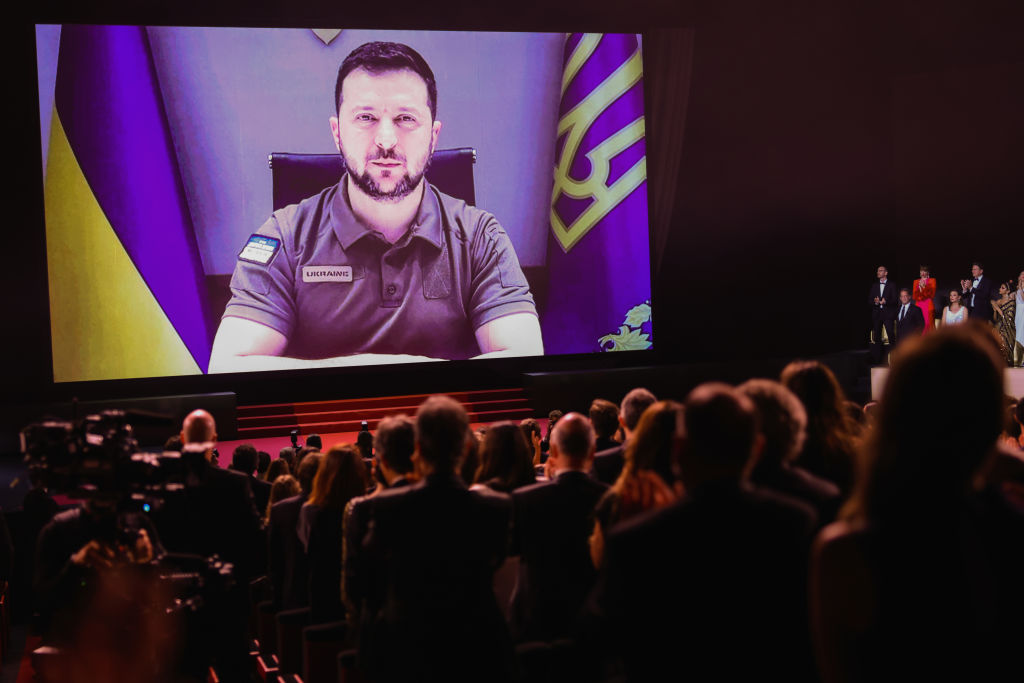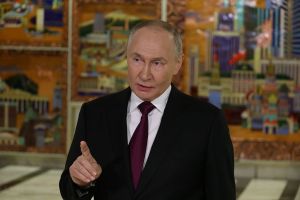The Cannes Film Festival remains the most glamorous and famous gathering of the movie industry in the world. High-profile, black-tie premieres attended by some of the best-known actors jostle alongside the more disreputable commercial market. Films on sale this year include My Neighbor Adolf, about the unlikely friendship that is struck up between a Holocaust survivor and a mysterious man who may or may not be Adolf Hitler. But back in the main festival, everything is going entirely to plan.
Apparently.
There has not been a “normal” Cannes Film Festival since 2019. The 2020 edition was canceled, and the 2021 event took place in reduced and rather glum circumstances in July. But now Cannes is back, back, back, bébé! And during its opening days, it has taken the publicity-centric approach of maximalism.
Tom Cruise has appeared to promote Top Gun: Maverick, and has duly been awarded an honorary Palme d’Or simply for being Tom Cruise. There has been a fly-past of jets to celebrate his coming, while Cruise was applauded to the skies for his public declaration that he was happy to wait two years for the film to be released rather than sell it to a streaming service. As I wrote recently, the last old-school movie star is a salesman through and through, and Cannes is only too happy to lap him up.
Top Gun: Maverick has been, like many Hollywood films that are anxious about foreign sales, careful about not making the nationality of its villains too explicit. Elsewhere at Cannes, however, the specter of villainy is all too clear. The Ukraine conflict is not just a major topic of conversation among the impeccably, even painfully liberal attendees. President Zelensky himself made an unexpected and headline-grabbing speech on the first night, beamed in by the magic of Zoom conferencing.
Showing typical panache and showmanship, the former actor summoned up the spirit of Charlie Chaplin’s Hitler satire The Great Dictator, saying, “The most brutal dictators of the 20th century loved cinema,” and explicitly quoted Chaplin’s film, specifically the lines, “The hate of men will pass, and dictators die, and the power they took from the people will return to the people. And so long as men die, liberty will never perish.” Zelensky concluded by asking, “Will cinema stay silent, or will it talk about it? If there is a dictator, if there is a war for freedom, again, it all depends on our unity. Can cinema stay out of this unity? …We need a new Chaplin who will prove that, in our time, cinema is not silent.”
It remains to be seen whether Zelensky’s plea will be answered. Nothing premiering at Cannes — whether or not David Lynch’s much-rumored project appears — is explicitly political in a Chaplin-esque fashion. David Cronenberg’s apparently insanely debauched Crimes of the Future should become this year’s most talked-about film, and will no doubt end with the usual Cannes chorus of mingled cheers and boos. But in their different ways, the appearances of Zelensky and Cruise are likely to overshadow the rest of the festival.
Cruise remains the consummate showman, an apolitical figure whose much-ballyhooed presence in a rare onstage interview was noteworthy for how little he gave away. But it was the image of Zelensky, looming Big Brother-like from the screens, that is likely to resonate longer. He ended his remarks by saying, “I’m sure that the dictator will lose… Glory to Ukraine.” It will be this, rather than any Croisette finery or controversial filmmaking, that is likely to be the defining feature of this strangest but perhaps most essential of Cannes festivals.
























